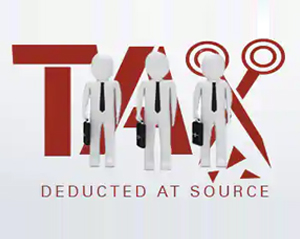Senior citizens may have various sources of income, such as pension, rental income, interest on savings, returns from investments, and more. Except a few, these income sources are taxed by the Government of India under the Income Tax Act, 1961. Let us understand income tax for senior citizens in detail.
Who is considered a Senior Citizen in India?
In India, a senior citizen is an individual between 60 and 80 years of age at any time during the relevant previous year.
Income Tax Slabs for Senior Citizens - FY2023
Presently, an individual can opt to pay tax under the existing tax regime (i.e. old tax regime) or under Section 115BAC (i.e. New tax regime). Taxpayers can choose to file their income tax return as per the regime that suits their requirements. An income tax calculator can help in choosing a suitable tax* regime.
- Old tax* regime
- New tax* regime
Under the old regime, a taxpayer can claim deductions under the various sections of the Income Tax Act, 1961. However, the income tax* rates are comparatively higher than the new tax* regime. Under the old tax* regime, income tax for senior citizens can be calculated as per the below slabs:
| Income tax slab | Tax rate as per the old tax regime |
|---|---|
| Up to ₹ 3,00,000 | Nil |
| ₹ 3,00,001 – ₹ 5,00,000 | 5% above ₹3,00,000 |
| ₹ 5,00,001 – ₹ 10,00,000 | ₹10,000 + 20% above ₹5,00,000 |
| Above ₹10,00,000 | ₹1,10,000 + 30% above ₹10,00,000 |
Under the new tax* regime, a taxpayer cannot claim any deduction of sections specified under Section 115BAC of the Income Tax Act, 1961. However, the income tax* rates are relatively lower than the old tax* regime. Under the new tax* regime, income tax for senior citizens can be calculated as per the below slabs:
| Income tax slab | Tax Rate As Per The New Tax Regime |
|---|---|
| Up to ₹ 3,00,000 | Nil |
| ₹ 3,00,001 – ₹ 7,00,000 | 5% above ₹3,00,000 |
| ₹ 7,00,001 – ₹ 10,00,000 | ₹20,000 + 10% above ₹7,00,000 |
| ₹ 10,00,001 – ₹ 12,00,000 | ₹50,000 + 15% above ₹10,00,000 |
| ₹ 12,00,001 – ₹ 15,00,000 | ₹80,000 + 20% above ₹12,00,000 |
| Above ₹ 15,00,000 | ₹1,40,000 + 30% above ₹15,00,000 |
1. Medical insurance benefits
Under Section 80D* of the Income Tax Act, 1961, senior citizens in India can claim deduction of up to ₹ 50,000* on the premiums paid towards health insurance plans for themselves. Taxpayers can also claim deduction of up to ₹ 50,000* on medical expenses incurred.
2. Treatment allowance for specific diseases
Under Section 80D* DB of the Income Tax Act, 1961, senior citizens can claim a deduction* for the expenses incurred on the treatment of certain diseases as defined by Rule 11DD for themselves up to ₹ 1 lakh or the actual cost incurred on the treatment of the illness, whichever amount is lower.
3. Income interest privilege
Senior citizens can claim a deduction of up to ₹ 50,000* under section 80TTB* in respect of interest earned on deposits with a bank, co-operative bank and the post office.
People like you also read...





